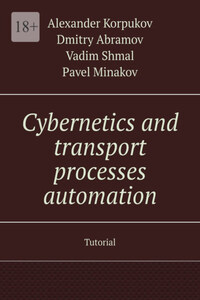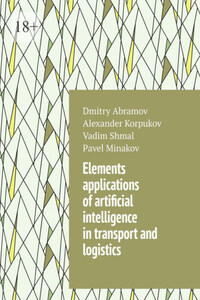Alexander Korpukov, Vadim Shmal - Cybernetics and transport processes automation. Tutorial

| Название: | Cybernetics and transport processes automation. Tutorial |
| Авторы: | Alexander Korpukov | Vadim Shmal |
| Жанры: | Книги о компьютерах | Прочая образовательная литература |
| Серии: | Нет данных |
| ISBN: | Нет данных |
| Год: | Не установлен |
О чем книга "Cybernetics and transport processes automation. Tutorial"
Abramov Dmitry, Moscow Polytechnic UniversityKorpukov Alexander, Pirogov Russian National Research Medical UniversityShmal Vadim, Federal state autonomous educational institution of higher education «Russian university of transport»Minakov Pavel, Federal state autonomous educational institution of higher education «Russian university of transport»
Бесплатно читать онлайн Cybernetics and transport processes automation. Tutorial
Книга заблокирована.
С этой книгой читают











